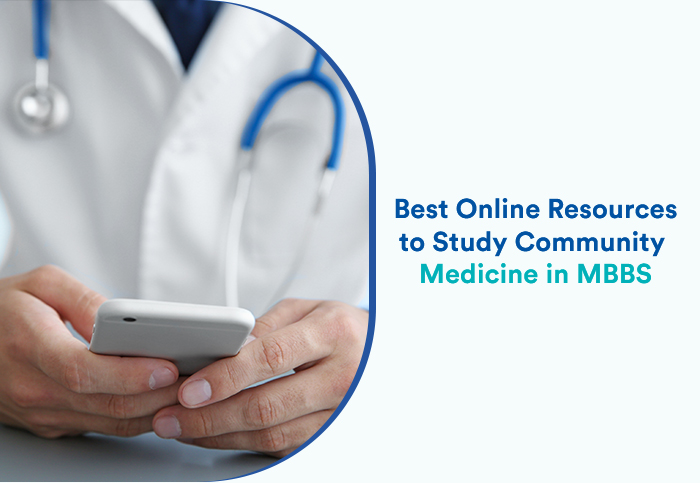
The primary goals of teaching community medicine are to familiarize medical students with primary and secondary healthcare environments where they will be required to provide effective primary, preventative, restorative, and rehabilitative treatments. In accordance with the National Health Goals and the Ministry of Health’s vision, they are better able to assist the community’s needs as primary healthcare providers using a holistic approach.
The Medical Council of India states that the Medical Graduates’ Training aims to enable graduates to contribute to “Health for All” by gaining knowledge of facets of the national policies on health, achieving competence in the practice of holistic medicine, developing a scientific temper, acquiring proficiency in the profession, promoting healthy living, and becoming an exceptional citizen by asserting medical ethics and fulfilling social and professional responsibilities. The main goal of imparting community medicine learning to MBBS students in India is to get them ready to practice as primary care and community physicians.
A subject-focused and time-based curriculum served as the foundation of the previous medical education system. Most evaluations were summative and left little possibility for feedback. The evaluation methods gave knowledge a higher priority than aptitude and competence. Patient communication, doctor-patient interactions, ethics, and professionalism were not prioritized. The fresh CBME curriculum comes in to fill the gap in this situation. It’s a method of guaranteeing that graduates acquire the abilities necessary to completely meet the needs of the patients. In place of time-based training, it encourages accountability, adaptability, and learner-centeredness.
| Community Medicine Syllabus as per CBME Curriculum |
| Concept of Health and Disease |
| Relationship of Social and Behavioural to Health and Disease |
| Environmental Health Problems |
| Principles of Health Promotion and Education |
| Nutrition |
| Basic Statistics and its Applications |
| Epidemiology |
| Epidemiology of Communicable and Non-communicable Diseases |
| Demography and Vital Statistics |
| Reproductive Maternal and Child Health |
| Occupational Health |
| Geriatric Services |
| Disaster Management |
| Hospital Waste Management |
| Mental Health |
| Health Planning and Management |
| Health Care of the Community |
| International Health |
| Essential Medicine |
| Recent Advances in Community Medicine |
Let’s look at a few pointers to make learning community medicine much simpler:
- Since it is such a dynamic subject that several revisions are necessary. Making notes is essential since digesting a large textbook is challenging.
- It is vital to take Community Medicine notes for programmes on infections and health. In India, programmes are used extensively to offer healthcare. If you have a specific programme for a disease, you must research it as well as comprehend the logic behind each step.
- Mugging up the study material won’t get you anywhere. Understand that the subject is based on widespread knowledge. Take it in like a newspaper, take in the key facts, and then gather more general information about the topic.
- Keep yourself informed of any government-sponsored healthcare initiatives or even announcements of revisions.
- Start with the more important chapters, such as infections and epidemiology, and work your way down to the simpler ones.
- The subject may initially seem impossible, but as you start to understand it, it becomes the most straightforward.
No matter how carefully you design your self-study plan, there comes a time when external help is required. There are online courses in community medicine that might help you optimize your preparation. Community Medicine for UnderGrads is an online course designed by one of the renowned faculty, Dr. Bratati Banerjee. Because of her distinctive approach to concept simplification, her publications “DK Taneja’s Health Policies and Programmes in India and Mahajan’s Methods in Biostatistics for Medical Students and Research Workers” have already earned a vital position on the shelves of the majority of medical undergraduates.
Recent revisions to the CBME curriculum have emphasized the integration of all courses as well as the improvement of students’ procedural abilities. In CBME, case-based learning has been given top priority, and even the test question format is case-based. This innovative method of learning the material has been effectively incorporated into the Community Medicine video lectures. The Community Medicine online course will assist the students in strengthening their understanding of examining the patient’s medical history, performing a clinical examination, and comprehending the treatment strategy for various diseases.
To support the course’s learning objectives, the theoretical principles important to diverse circumstances are provided systematically and by specialty, along with discussions of appropriate cases. A separate section has been devoted to the exploration of the fundamentals of system-wise examination because case-taking and clinical examination constitute the foundation of medical practice. The students will be ready for clinical settings thanks to this. The course also includes national health policies and recent advancements in public health.
For the purpose of preparing the students for the NEET, USMLE, PLAB, or any other post-graduate test, the lectures will aid in cementing high-yield topics by understanding them at their core.




